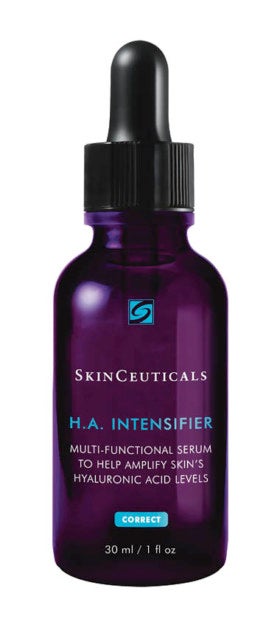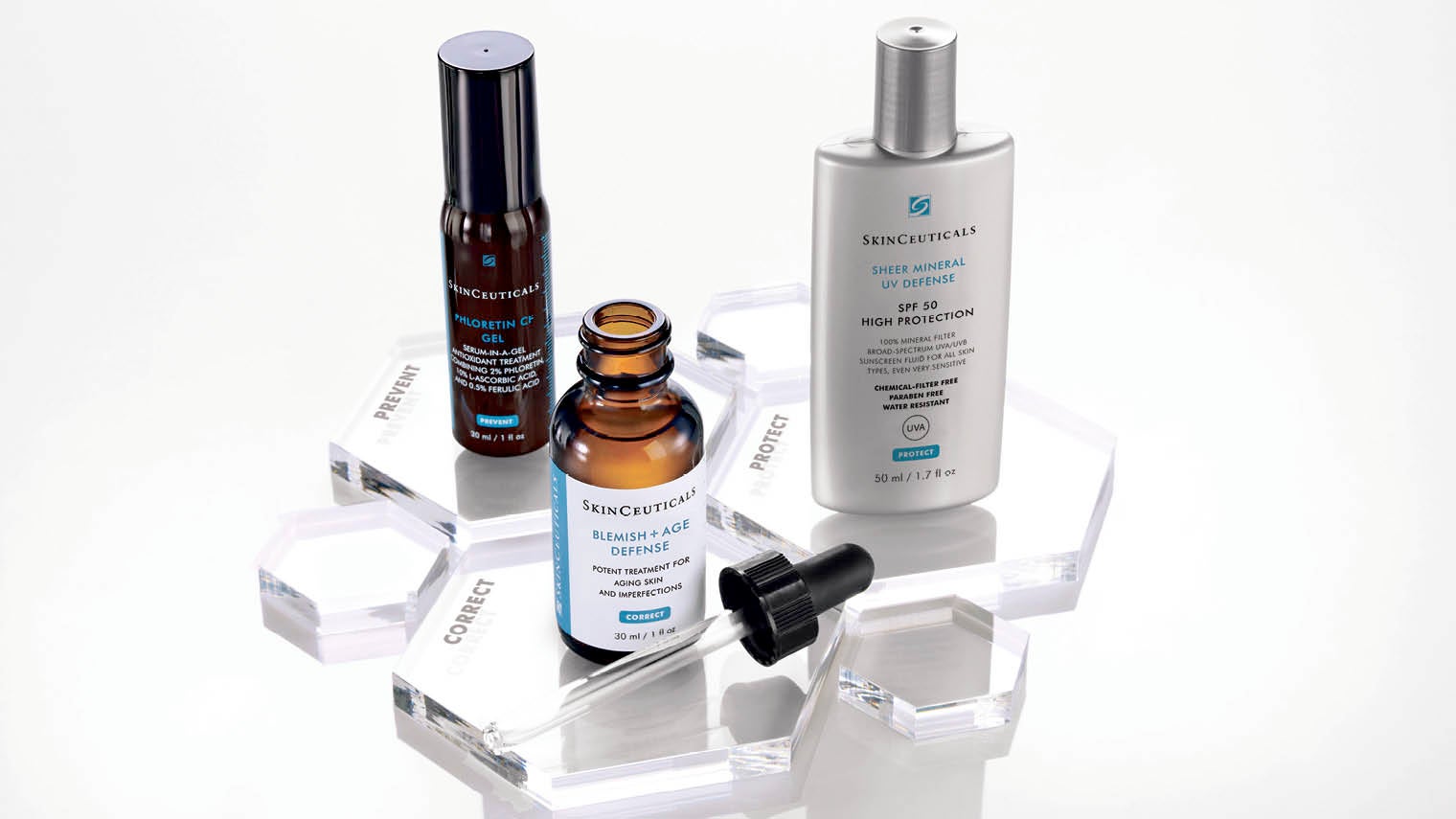 Looking after your skin is as much about understanding which internal and external factors can damage it, as it is about optimising your skincare routine. Sun exposure – UVA and UVB – and ozone pollution can cause visible signs of ageing such as fine lines, wrinkles and pigmentation, but you can mitigate these by using professional skincare products that will help achieve healthy-looking skin.
Looking after your skin is as much about understanding which internal and external factors can damage it, as it is about optimising your skincare routine. Sun exposure – UVA and UVB – and ozone pollution can cause visible signs of ageing such as fine lines, wrinkles and pigmentation, but you can mitigate these by using professional skincare products that will help achieve healthy-looking skin.
The market for skincare, or more specifically for cosmeceuticals, is bigger than ever. It’s difficult to know where to start when choosing what to routinely use on your skin, let alone understanding why you should consider using advanced formulations.
There is now an abundance of over-the-counter skincare products, with increasingly technical-sounding marketing, offering “youth in a jar”. Most of the promotional messages are carefully choreographed and delivered by celebrities, but how many of them can truly call themselves a cosmeceutical and are consumers just left baffled?
Savvy skincare buyers have become more knowledgeable and have higher expectations from their skincare routine. They are looking for effective products with fast-acting and long-lasting results they can see.
Cosmeceuticals incorporate effective, potent and biologically active ingredients. One such pioneering brand is SkinCeuticals. Their products are clinically proven to prevent skin damage from environmentally ageing factors, to correct existing damage and to protect healthy skin.
These products are not found in high street department stores or supermarkets, but stocked in dedicated outlets such as cosmetic clinics, medi-spas and a selection of luxury spas.
SkinCeuticals stand strong in their belief in the use of proven levels of stable, effective and potent ingredients, such as powerful antioxidants like vitamin C, vitamin E, ferulic acid, resveratrol and phloretin, which work together synergistically to help prevent free radical damage. Other key ingredients include hydrators, such as hyaluronic acid, alongside well-known and powerful ingredients, such as retinol (vitamin A), vitamin B5, cholesterol and niacinamide.
A focused and driven brand, SkinCeuticals has a long history of working with multi-disciplinary teams of dermatologists and researchers to develop skincare products that work and are backed up by scientific findings. SkinCeuticals work hard to communicate their message responsibly; you won’t find cosmetic jargon, but you will find clinical data and products that are designed to deliver the results you should expect from a scientifically proven skincare range.
They tell it how it is – science doesn’t lie and good science doesn’t need to
The brand is borne out by the discoveries of Duke University professor of dermatology, the late Dr Sheldon Pinnell, father of understanding how topical vitamin C can be absorbed into the skin, founding the “Duke parameters”.
This patented formulation within the SkinCeuticals vitamin C serums ensures that pure L-ascorbic acid can be absorbed into the skin effectively. The parameters dictate that L-ascorbic acid needs to have an acidic pH to penetrate through the skin layers, and the use of a concentration of between 10 and 20 per cent to achieve beneficial levels of vitamin C. This discovery places SkinCeuticals firmly as an authority on antioxidants, and the vitamin C formulation is found in all their core antioxidant-rich products, including C E Ferulic, Phloretin CF and AOX Eye Gel.
Committed to their foundation in science, they have more than 40 publications to validate the clinical research they undertake. A key focus is to evaluate the link between skin ageing and environmental factors. Their most recent, cutting-edge study data shows the protective effects of their vitamin C formulations, C E Ferulic and Phloretin CF, against the effects of ozone pollution in human skin.
Education is also important to SkinCeuticals, which is why they are raising awareness that sunscreen use alone isn’t enough to defend your skin against environmental factors; you need antioxidants too as an additional shield. The double-defence concept combines their topical antioxidant serums with a high SPF sun protection. This provides a comprehensive protection against environmental aggressors.
One of the newest products in their Correct range is H.A. Intensifier, a corrective serum which incorporates hyaluronic acid (HA), pro-xylane, plus extracts from purple rice and liquorice. This formulation aids hydration by enhancing natural HA synthesis to help renew plumpness, elasticity and firmness in the skin. H.A. Intensifier has been shown to increase the levels of hyaluronic acid in the skin by 30 per cent.*
This innovation is the culmination of four years’ research. While many scientists have struggled to create product formulations that would deliver HA below the surface of the skin, researchers at SkinCeuticals turned the problem on its head and found ingredients that appear to stimulate the natural HA content of the skin.
This focus on science and results means SkinCeuticals products are designed, formulated and tested to be effective. This is not only done in a petri-dish, but in-vivo on real skin, on real people and on all skin types.
They tell it how it is – science doesn’t lie and good science doesn’t need to. They are perhaps guilty of hiding their light under a bushel, but underestimate them at your peril.
SkinCeuticals aim to provide an integrated skincare solution for clients by offering an advanced, evidence-based, home-use product range as well as in-clinic treatments, such as professional skin peels. Not only do the products complement other professionally delivered cosmetic treatments, they also provide results to prevent, correct and protect skin when used in a standalone regime.
To achieve healthy-looking skin, book your consultation with a SkinCeuticals expert who can create a bespoke skincare regime just for you.
Find you nearest SkinCeuticals professional clinic or medi-spa by visiting www.skinceuticals.co.uk/stores/ and learn more about SkinCeuticals products at www.skinceuticals.co.uk

*Total hyaluronic acid content evaluated with ELISA (enzyme-linked immunosorbent assay) method on skin biopsies







